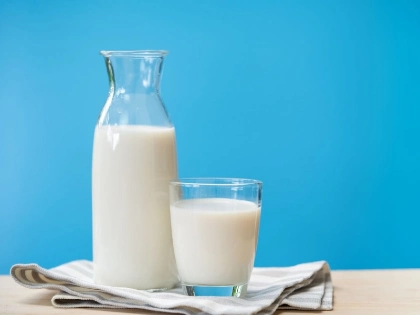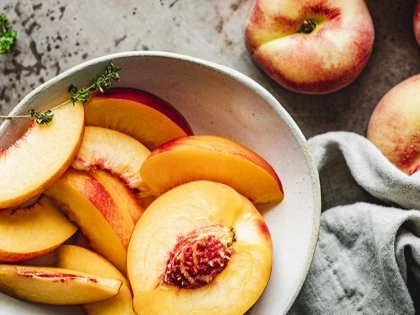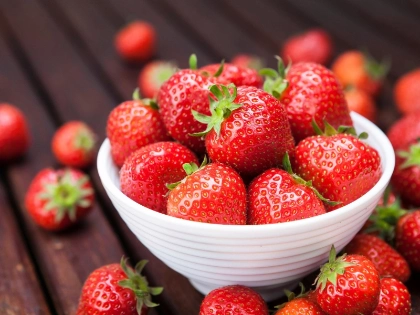A tomato's glycemic index is low. Since they don't raise blood sugar levels as sharply as many foods with a high glycemic index do, they are an excellent option for diabetics.
They have natural sugar, but the sugar in tomatoes is slowly absorbed, preventing a sharp rise in blood sugar levels, in contrast to added sugar found in soda, candies, and cakes. They also supply a good dose of lycopene, vitamin C, and fiber.
1. Sugar of Nature
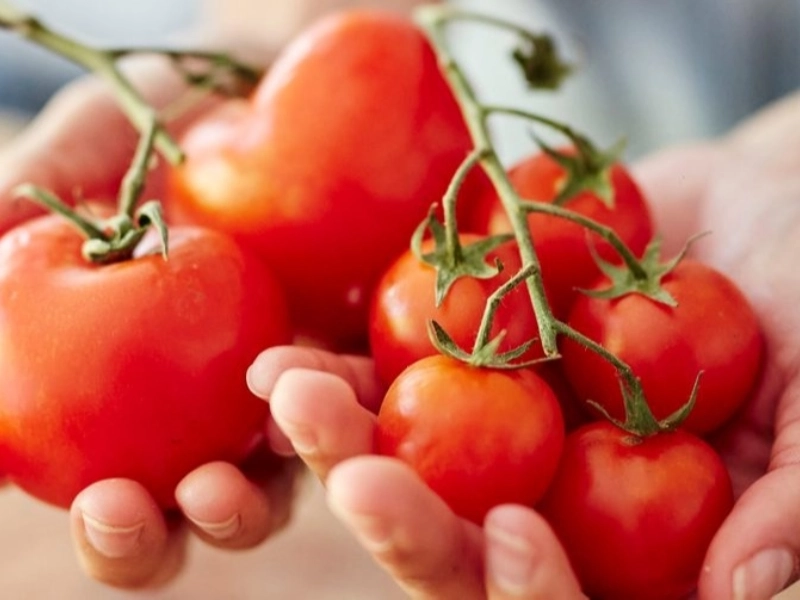
Tomatoes, being a vegetable, shouldn't cause blood sugar spikes. It's crucial to recognize the difference between added sugars and sugars that exist naturally, though. Well-known diets and health organizations caution against the dangers of added sugar, which fills you up with empty calories and increases your risk of heart disease and diabetes in addition to causing weight gain.
On the other hand, a lot of fruits and some vegetables contain natural sugars. Foods like tomatoes and some dairy items contain them. Additionally, they can be found in a variety of processed foods, such as ketchup, candies, granola bars, salad dressings, and desserts.
An approximate of 30 calories and around 7 grams of carbs, including 4 grams of sugar, are found in one cup of sliced tomatoes, or 6.25 ounces.
2. Saccharine
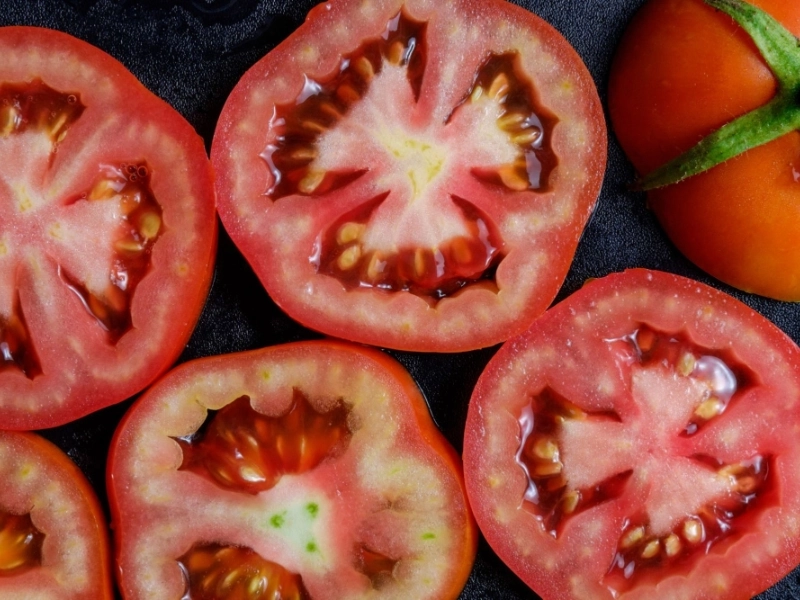
The main naturally occurring monosaccharide sugar found in honey, some fruits (including figs), and some vegetables in trace amounts is fructose. Fructose and glucose combine to make sucrose, the table sugar. The liver, pancreas, gut, and skeletal muscle convert glucose and fructose to produce glycogen, which is used to provide energy.
The primary sugars, fructose and glucose, along with the organic acids malic and citric acid, are crucial for tomato fruit flavor and are therefore critical breeding characteristics. It was investigated how these metabolites varied phenotypically at various fruit stages and locations.
The varieties that tested yielded the highest fructose accumulation were S-type cherry tomatoes. LeSUT1 and LeSUT2, as well as the hexose transporter SwEET7a, which is involved in the allocation of carbohydrates, were found to be connected to the accumulation.
3. Glucose
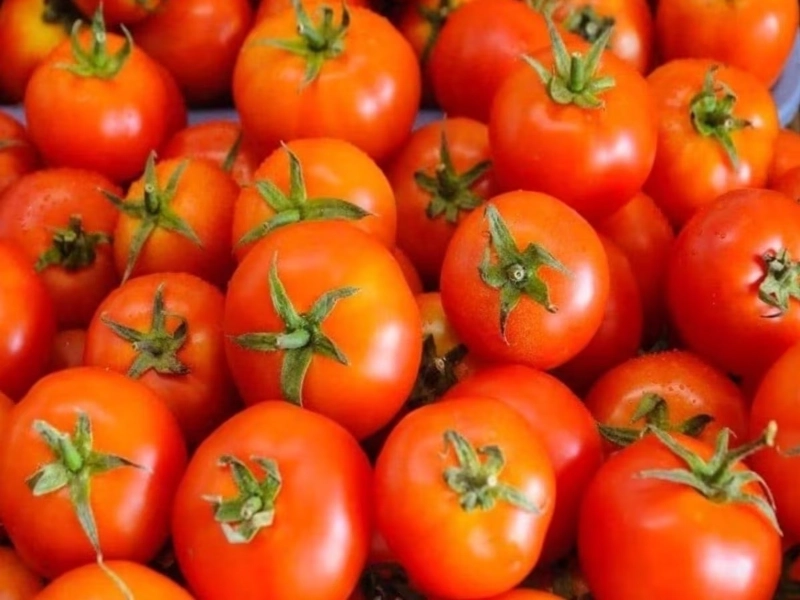
Because tomatoes don't contain a lot of carbohydrates, eating them shouldn't dramatically raise your blood sugar levels if you have diabetes. But, it's crucial to read the nutritional label if you're consuming tomato juice or any other processed tomato product because they could have higher carbs than whole tomatoes.
The sole monosaccharide found in tomatoes is glucose, which contributes significantly to fruit quality and makes up a portion of the total soluble solids (Goff and Klee, 2006). Plants likewise get most of their energy from glucose. In green plants, it is created during photosynthesis and stored as starch. For use in foods and drinks, starch can be commercially divided into glucose, maltodextrins, and polyols.
Tomatoes have a lot of additional elements that are beneficial to health in addition to a high natural sugar content. On the other hand, be wary of other tomato-based goods as they can contain additional fructose, sucrose, dextrose, or evaporated cane sugar.
4. Violene
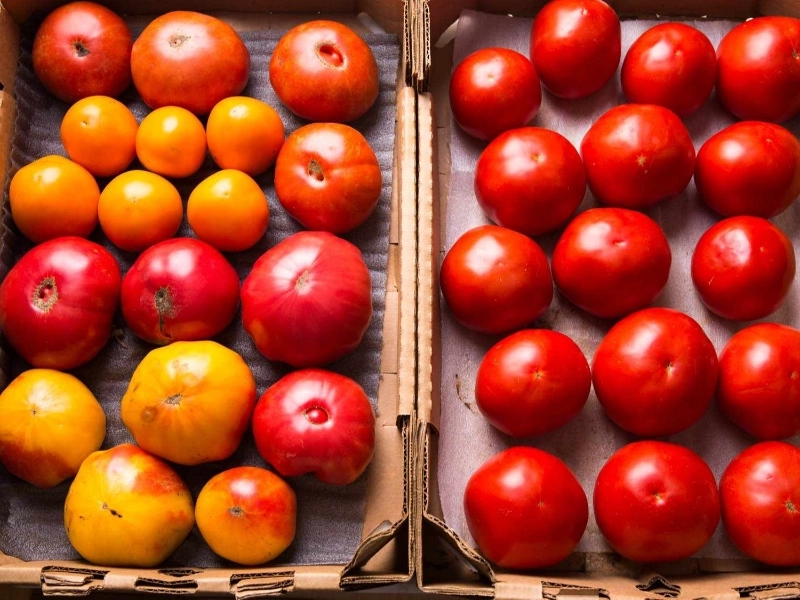
The antioxidant carotenoid pigment lycopene is responsible for the red color of many fruits and vegetables. It is an extremely potent nutrient that has been demonstrated to guard against oxidative damage, cancer, heart disease, and other ailments. In the Western world, tomatoes constitute the most significant dietary source of lycopene.
According to studies, lycopene lowers blood pressure, oxidative damage to cells, cholesterol, and the growth of cancers. Additionally, it seems to prevent prostate cancer through promoting the body's production of detoxifying proteins.
Cooked tomato products are a better source of lycopene than raw ones. For added benefit, natural antioxidants like beta-carotene and vitamin E are frequently added to processed tomatoes. Most people can safely consume lycopene from supplements, but those who take blood thinners or other medications that influence the coagulation system, have high blood pressure, or high cholesterol should exercise caution when using synthetic lycopene supplements.
5. Calcium
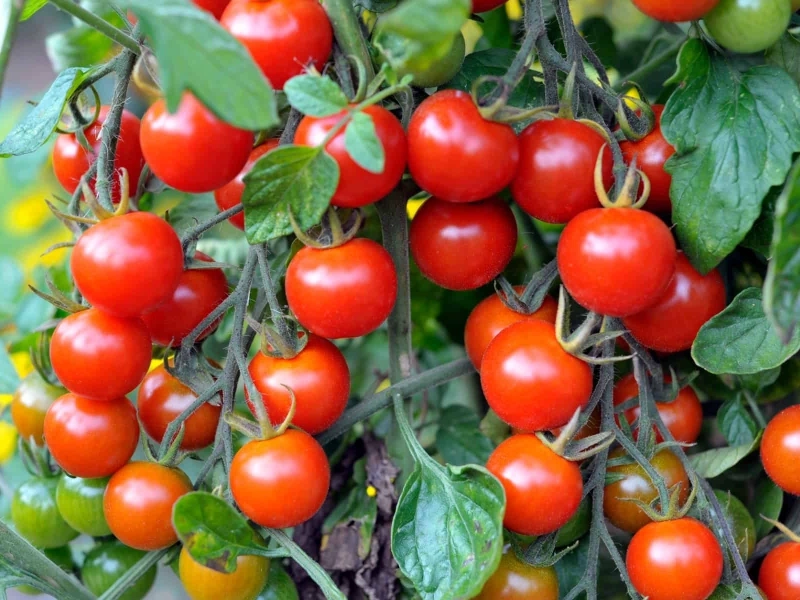
It has been demonstrated that a diet high in potassium and low in sodium lowers the risk of heart disease. Along with beans, oranges, bananas, and leafy greens, tomatoes are a good provider of this mineral. By opposing the body's acids, potassium also aids in preventing a dip in blood pH.
To guarantee excellent fruit, tomatoes require a lot of potassium. Trials conducted in the UK have shown that an appropriate supply enhances fruit yield and improves water use efficiency. It's necessary for protein synthesis and pigment synthesis, including lycopene synthesis, and it also helps maintain ionic equilibrium and nutrient delivery.
In addition, tomatoes are a strong source of folate, which can help lower homocysteine levels, a heart disease risk factor. Additionally, a high folic acid diet can lower the risk of stroke.







